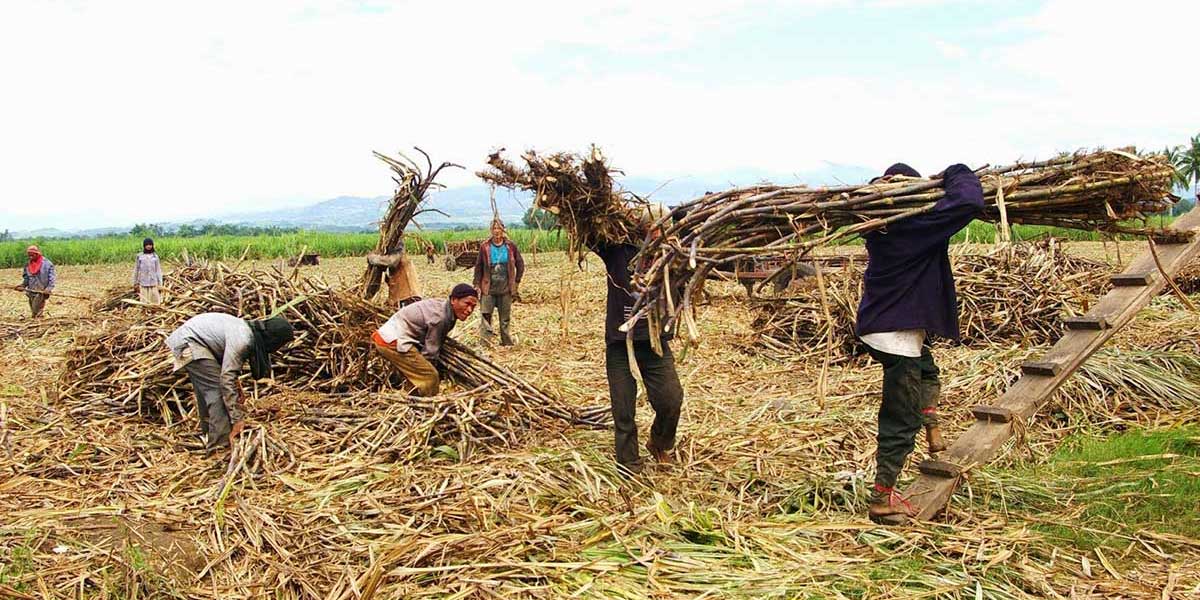
By Dolly Yasa
BACOLOD City – The United Sugar Producers Federation (UNIFED) scored Sugar Order No. 3 issued by the Sugar Regulatory Administration (SRA) that permits the importation of 200,000 metric tons of sugar, especially at the peak of the sugar milling season.
UNIFED President, Manuel Lamata said in a statement Sunday that “this is appalling that the very agency that is supposed to protect us seems determined to kill the industry.”
UNIFED is one of the biggest federations of sugar planters in the country.
Former SRA board member Atty. Dino Yulo said “this is adding insult to injury.”
Yulo added that the issuance of the order is “very ill-timed.”
SRA justified the Sugar Order as a way to stabilize rising cost of sugar and the expected low productivity in sugar producing areas that was affected by Typhoon Odette.
But Yulo said that it is ironic that while the clamor for high price of sugar comes from small vendors, “the one that will clearly benefit in this importation are industrial users, especially bottling companies that have been provided half of the import quota.”
He also said that while SRA claims this is based on projection from industry stakeholders that indeed there will be a shortage of sugar due to low production in sugar lands, especially in Negros that was severely devastated by Odette and accounts for more than half of the country’s total production, “the import volume is way too much and not at this time when sugar milling is at its peak.”
“We are still in a midst of a crisis, and our sugar planters in Southern Negros are still trying to recover from the effects of Odette, and here is another crisis that will hit us. We hope that SRA will reconsider and amend the order until they get a good picture from the ground as to what quantity is just needed to ensure that the industry is protected,” Yulo said.
The SRA said it received instructions from the Department of Agriculture “to temper the current level of high local sugar prices that it considers at this time a sugar import program.”
The SRA said 100,000 metric tons would be standard grade refined sugar while the other 100,000 MT would be “bottlers’ grade” refined sugar used by the beverage industry.
The SRA said that wholesale and retail prices of raw sugar and refined sugar have reached record highs after Typhoon “Odette” devastated many parts of the Philippines in December last year, including the sugar-producing regions of Negros, Panay and Eastern Visayas.
Sugarcane, sugar stocks in warehouses and facilities and equipment of sugar mills and refineries in key sugar milling districts were damaged.
As a result, the wholesale price of raw sugar in the National Capital Region (NCR) is now P2,000 per 50-kilogram bag (LKg) and refined sugar is P2,900 per Lkg, both “historic highs,” the SRA said.
The retail price of raw sugar in certain markets has hit P48 a kilo while the retail price of refined sugar ranges from P57 a kilo to P60 a kilo, higher than the suggested retail prices for raw sugar and refined sugar.
The devastation caused by the storm lowered raw sugar production estimate for crop year 2021 to 2022 to 2.072 million MT from 2.099 million MT.
Lamata said that it is “very frustrating for SRA to make this import order a priority when it has not even addressed our request to urge the Department of Agriculture and the Department of Trade and Industry to put a cap on fertilizers’ cost which was put forth since last year.”
“They only see the increasing cost of sugar in the market but they do not acknowledge the forces driving those prices up and much of it can be attributed to fertilizers that almost tripled its cost and fuel that has breached the P50 per liter mark,” Lamata said.
He also said that “if you weigh everything, whatever increase in sugar prices we are seeing in the market, goes to our paying high cost of farm inputs.”
Lamata further said that they have not been consulted on the matter and while they knew that some planters’ groups agreed to the importation program, “they thought that SRA and the DA will also give in exchange, fertilizers subsidies at the very least.”



















